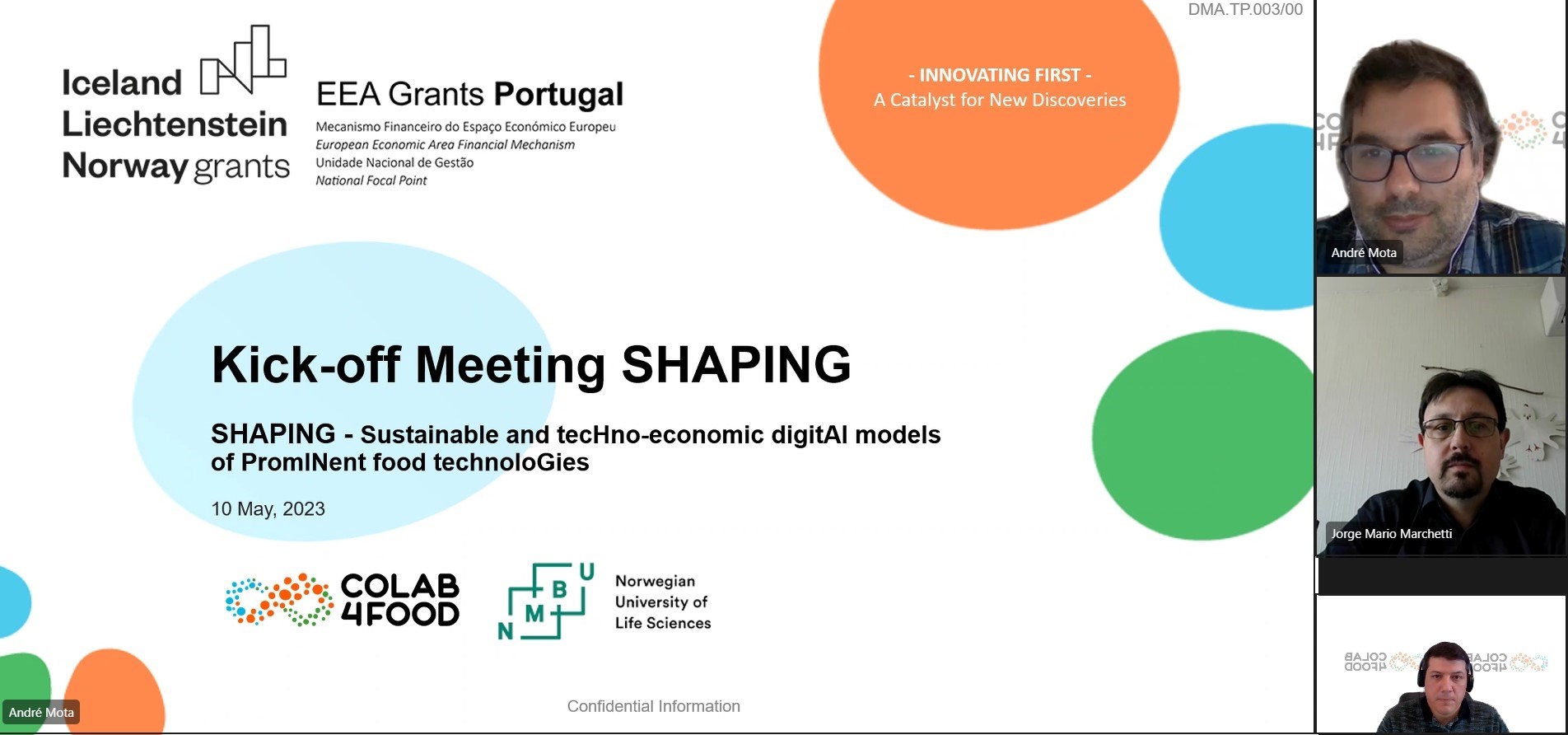SHAPING - Sustainable and tecHno-economic digitAl models of PromINent food technoloGies
SHAPING

Promoter: Associação Colab4Food - Laboratório Colaborativo para a Inovação da Indústria Agroalimentar
Partners:Reaction Engineering and Catalysis Group - Faculty of Science and Technology, Norwegian University of Life Sciences
EEA Grants: 14 473,98 €
Total Amount: 16 082,20 €
Grace Code: PT-BI081
Programme:What did this initiative focus on?
Currently, most food industries rely on fossil fuels (mainly natural gas) for their energy-intensive processes, such as heating, cooking, pasteurisation or drying. Thus, the use of renewable electricity is one of the keys to a food value chain with a reduced impact on the environment, more resilient and independent of energy imports. It is imperative to boost the electrification of unit processes in the food industry using renewable energy sources. One of the solutions is emerging food processing technologies based on electricity. These technologies can replace traditional technologies with greater efficiency (up to 50%) in energy use and with valuable additional benefits, such as improved organoleptic properties (colour, sensory and nutritional) and preservation (self-life).
The main objective of this initiative is to develop a simple/basic tool that integrates techno-economic modelling with carbon footprint calculation for emerging food processing technologies, combining the food science and engineering expertise of Colab4Food (C4F) with the TEA expertise of the Norwegian University of Life Sciences (NMBU). The desired models will be developed on the basis of knowledge sharing, joint research and development by both organisations within the framework of this initiative. This will be the first step in a medium-long term strategy to strengthen bilateral relations based on future joint services and projects.